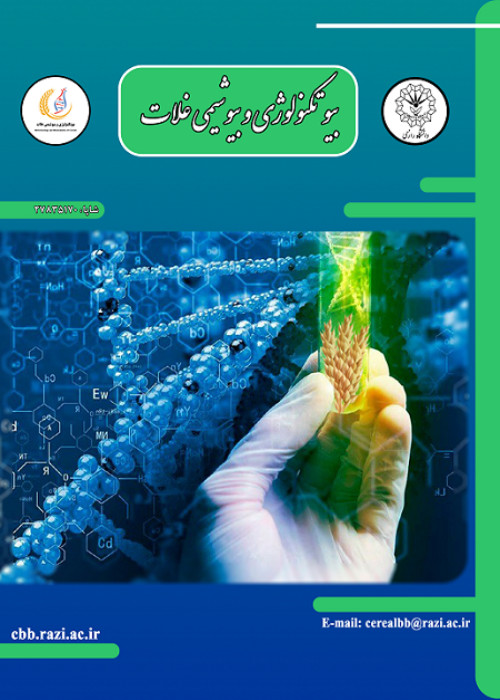Effect of foliar application of potassium fertilizers on yield, yield components and grain protein of dryland wheat
Among the macro-elements needed for plants, potassium has a fundamental role, such as osmotic adjustment, maintaining turgor pressure, stomatal function, enzyme activity, protein synthesis, oxidant metabolism, photosynthesis, and resistance to environmental stresses (humidity and heat) at the end of the dryland wheat growth period. Although about 80% of the potassium required by the plant is provided by diffusion, because the diffusion of potassium ions in dry soil is reduced 100 times compared to wet soil, therefore, with water limitation and moisture stress conditions, the absorption of this element by the plant is significantly reduced. Therefore, to solve the limitations of the absorption of this element through the roots in the conditions of moisture stress and heat at the end of the season, the present experiment was carried out by spraying potassium compounds on dryland wheat at different stages of growth.
The experiment was conducted on dryland wheat (Rijaw cultivar) as a split plot based on a randomized complete block design with three replications in the Dryland Agricultural Research Sub-Institute during the 2021-2022 cropping seasons. The factor of the growth stage in the main plots included pregnancy (booting stage), the beginning of flowering, and the spraying factor with four levels in the sub-plots included the control treatment (without spraying), potassium sulfate solution spraying at a concentration of 1%, potassium dihydrogen phosphate (KH2PO4) at a concentration of 1% and potassium sulfate at a concentration of 1% + 1% urea. The volume of spraying solution for each experimental treatment in a sub-plot with an area of 100 square meters was calculated for 500 liters per hectare. It was performed after adding the spraying soap (surfactant) in cool and calm weather (wind speed less than 8 km/h) before 9 am.
The main effect of foliar application time on biological yield, grain yield, yield components, straw yield, and percentage of protein and potassium of Rijaw wheat grain was insignificant. However, the main effect of foliar spraying on biological yield, grain yield, the thousand seeds' weight, the number of seeds per spike, and seed protein percentage were significant. The highest biological and grain yield were obtained from foliar application of 1% potassium sulfate with values of 4495 and 1604 kg/ha, respectively, which, despite the difference of 365 and 248 kg/ha, had not significantly different from the biological and grain yield of potassium dihydrogen phosphate as foliar application. The lowest biological yield and grain yield were also related to the control treatment with values of 3588 and 1175 kg/ha, respectively. Foliar spraying of different potassium compounds could increase the thousand seed weight and the number of seeds per spike by 4.5 grams and six seeds, respectively. The highest increase for thousand seeds weight with 40 grams was attributed to potassium sulfate + urea foliar spraying and the highest number of seeds per spike with 32.5 seeds was allocated to potassium sulfate foliar application, which did not show a significant difference with potassium sulfate + urea foliar application. The interaction effect of foliar application time with different foliar application treatments was also significant only on seed potassium percentage. The highest increase in seed protein percentage of 4.8 units was related to potassium sulfate treatment, which was not significantly different from the other two treatments of potassium sulfate + urea and potassium dihydrogen phosphate.
Overall, the foliar application of potassium compounds increased the grain yield by 211 kg per hectare. As grain yield and protein percentage among the tested treatments have increased, foliar application of potassium sulfate is recommended.
- حق عضویت دریافتی صرف حمایت از نشریات عضو و نگهداری، تکمیل و توسعه مگیران میشود.
- پرداخت حق اشتراک و دانلود مقالات اجازه بازنشر آن در سایر رسانههای چاپی و دیجیتال را به کاربر نمیدهد.


